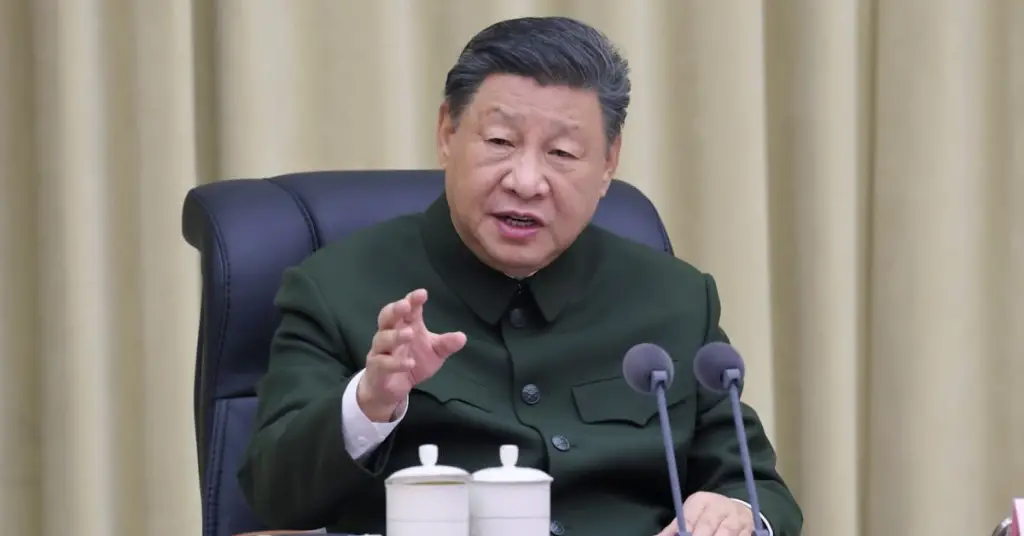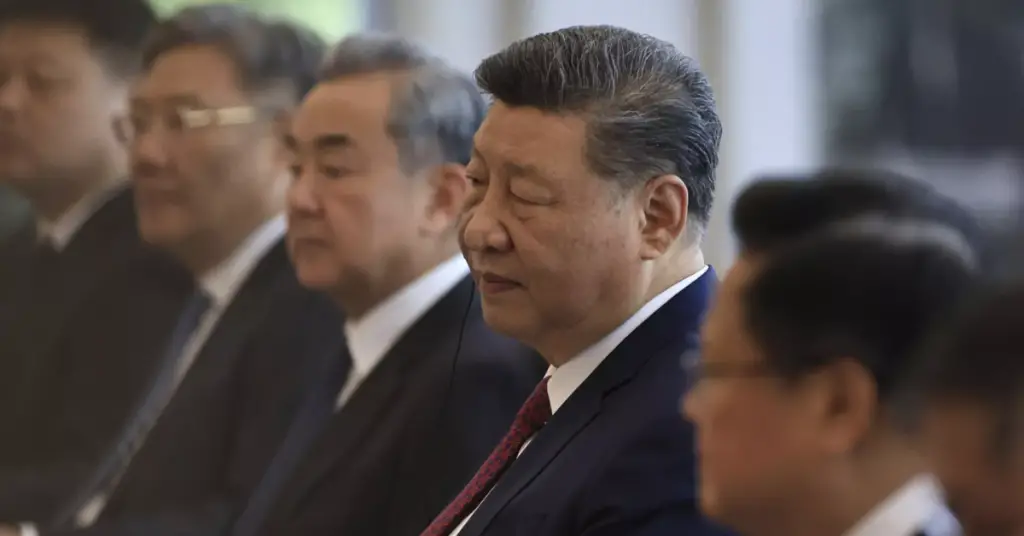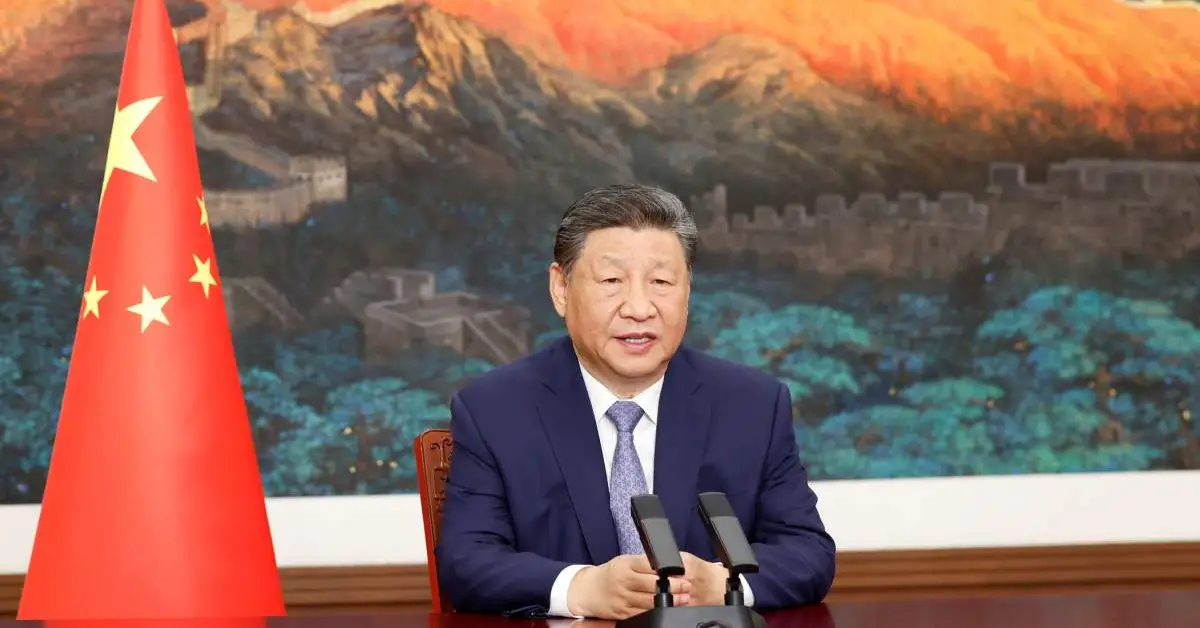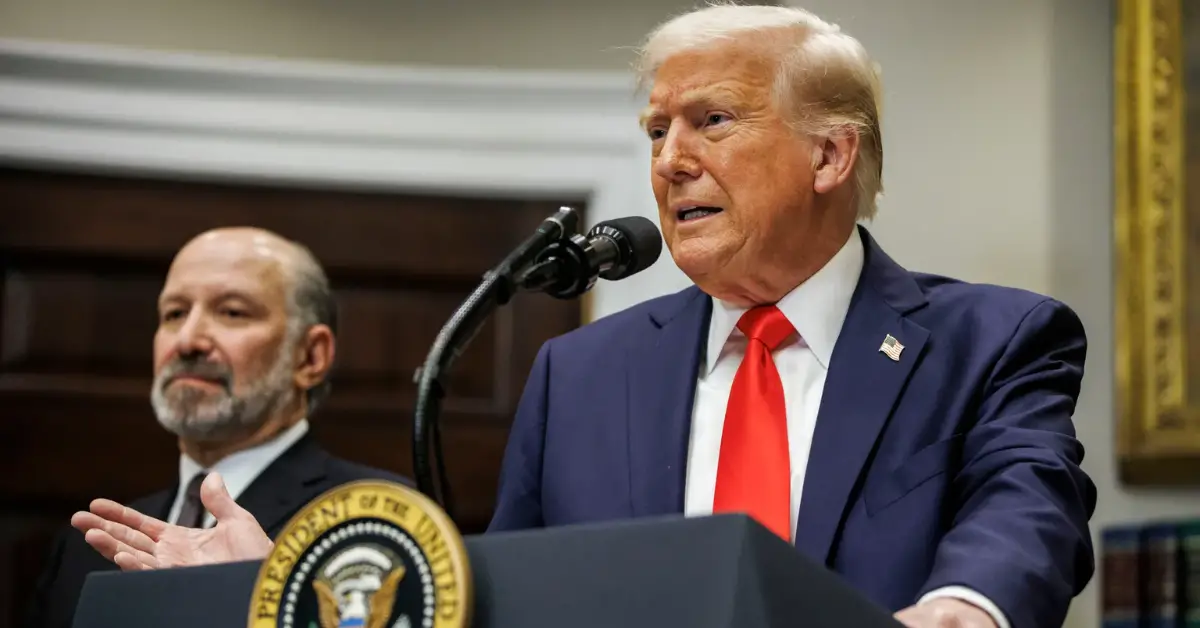China has denied the existence of any ongoing tariff negotiations with the United States, sending shockwaves across the markets. Guo Jiakun, China’s Foreign Ministry Spokesperson, made a statement on April 25, asserting that the U.S. should stop creating confusion regarding their trade relations.
This comes in response to claims made by U.S. President Donald Trump, who stated in an interview with TIME magazine on the same day that Chinese President Xi Jinping had reached out to him, and that both administrations were actively engaged in talks to reach a deal. According to Trump, a “total victory” for the U.S. would be achieved if tariffs on imports remained as high as 50% by the same time next year.
Despite these claims from the U.S., China has made it clear that there are no active discussions regarding tariff negotiations between the two nations. The Chinese government has firmly stated that the confusion caused by such reports should cease, and that its position on the matter remains unchanged.
This stark contradiction between the two countries’ official statements has left investors and analysts baffled, as they struggle to interpret the true state of affairs between the two largest economies in the world.
The U.S.-China trade war has been a major point of contention for several years, and the tariffs imposed by both nations have significantly disrupted global trade flows. Both countries have imposed hefty tariffs on a wide range of goods, with the U.S. imposing a 145% tariff on Chinese imports and China retaliating with 125% tariffs on U.S. products. These tariffs have led to price hikes, supply chain disruptions, and increased uncertainty in international markets.
On the same day that President Trump made his remarks about ongoing talks, Bloomberg reported that China is considering a major shift in its approach to these tariffs. According to the report, China is considering suspending the 125% tariffs on key U.S. imports.
The decision comes in light of the significant damage caused to China’s industries due to the ongoing trade conflict. The potential tariff suspension could have substantial implications for U.S. exports, and global market analysts are closely watching it.
Among the U.S. products that China is reportedly considering reducing tariffs on are medical equipment, industrial chemicals, aircraft leasing payments, and specific semiconductor products. China is considering suspending tariffs on at least eight types of semiconductor products.
However, products manufactured by the U.S. tech giant Micron are excluded from the potential tariff cuts. The decision to reconsider tariffs on these critical products appears to be a response to the damaging effects of the trade war on essential Chinese industries, which have faced rising production costs and a slowdown in their growth due to the tariffs imposed by both countries.

It is worth noting that China’s consideration of tariff reductions comes shortly after the U.S. made a similar move. On April 14, the U.S. government announced an exemption for certain tech and automotive products from new tariff hikes. This move was seen as a gesture of goodwill and an attempt to ease the trade tensions between the two nations.
As part of their strategy, the U.S. administration has made it clear that it is open to revising the tariffs imposed on Chinese imports if there is progress in negotiations. However, these adjustments have not been widespread, and many of the key products subject to high tariffs remain unaffected.
While China is considering a shift in its tariff policies, it is still in the early stages of making these changes. Sources familiar with the matter have revealed that the Chinese government has requested that domestic companies submit suggestions on which U.S. imports should receive tariff relief. However, as of now, no official list of products has been approved, and the Chinese government has not made any formal announcements regarding the exact details of the tariff reductions.
The timing of these developments is particularly significant, as global markets are closely monitoring any signs of resolution in the U.S.-China trade conflict. The trade war has been a major source of economic uncertainty, and any signs of easing tensions could provide a much-needed boost to global trade and investment.
The potential suspension of tariffs on key U.S. imports could have a profound impact on the U.S. economy, particularly in sectors such as technology, manufacturing, and medical equipment, where China has been a critical market for American products.

At the same time, the U.S. has made it clear that it is not willing to entirely back down on its tariff stance. The U.S. administration has indicated that it will continue to push for a deal that secures long-term trade benefits for the American economy, while also addressing concerns over issues such as intellectual property theft and unfair trade practices.
President Trump’s comments about achieving a “total victory” if tariffs remain high for another year underscore the administration’s commitment to maintaining a tough stance on trade negotiations with China.
The back-and-forth between the two countries has left investors and market participants uncertain about the future of the global economy. As China weighs the possibility of easing its tariffs, it is clear that both nations are trying to balance the immediate impacts of their decisions with the long-term goals of their trade strategies. The global economy, already heavily impacted by the COVID-19 pandemic, continues to face significant challenges, with trade tensions between the U.S. and China further adding to the uncertainty.
In the midst of these developments, the cryptocurrency market has also been reacting to the news. The crypto market, which has been volatile throughout 2023, is attempting a recovery as its market capitalisation has surpassed $3 trillion.
At the time of writing, Bitcoin was trading at $94,166.80, signalling that investors are cautiously optimistic about the broader financial market. While the crypto market is still reeling from past market fluctuations, some analysts believe that ongoing trade tensions and global economic uncertainty could drive increased interest in alternative investment assets, such as cryptocurrencies.
In conclusion, the latest developments in the U.S.-China trade war have raised more questions than they have answered. China’s denial of any active tariff negotiations, combined with its consideration of suspending tariffs on key U.S. imports, suggests that the situation is far from resolved.
As both countries continue to navigate the complex dynamics of global trade, the international market will be closely watching the next steps in this ongoing economic standoff. Whether or not a comprehensive deal is reached remains to be seen, but for now, the uncertainty surrounding tariffs continues to have a significant impact on global markets.
Disclaimer: This article has been meticulously fact-checked by our team to ensure accuracy and uphold transparency. We strive to deliver trustworthy and dependable content to our readers.




